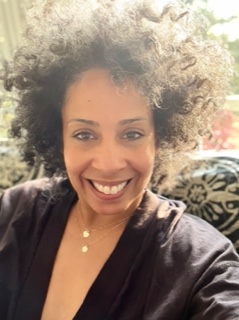 How can everyone be powerful? Here is a question that challenges us to consider the existence and experiences of others, inviting us to contrast them with our own. It can inspire the expansion of our beliefs, deepen our understanding and grow our connections, and ultimately inspire us towards manifesting greater equity and justice in our work and lives.
How can everyone be powerful? Here is a question that challenges us to consider the existence and experiences of others, inviting us to contrast them with our own. It can inspire the expansion of our beliefs, deepen our understanding and grow our connections, and ultimately inspire us towards manifesting greater equity and justice in our work and lives.
Belonging is “the spiritual practice of believing in and belonging to yourself so deeply that you can share your most authentic self with the world and find sacredness in both being a part of something and standing alone in the wilderness. True belonging doesn’t require you to change who you are; it requires you to be who you are.” (Brown, 2021)
Belonging is a fundamental human desire like love. And the relationship between belonging and culture is intimate.“More than anything, culture creates a sense of belonging…” (Menakem, 2015) Humans need to belong to live meaningful, healthy and wholehearted lives. In the pursuit of equity, belonging must be the outcome for everyone to thrive in an integrated society.
So what prevents us all from belonging? Why don’t more belonging environments exist in our society?
It is the dominant culture, the operating system of white supremacy, that excludes and causes suffering for those who do not “fit in” or meet this standard of being and doing. The culture of white supremacy includes “the historical and current accumulation of structural power that privileges, centralizes, and evaluates white people as a group.” (DiAngelo, 2012) and involves seeing “whites as the norm or standard for human, and people of colour as a deviation from that norm.” (Menakem, 2015)
Through a practical example, we will explore how white supremacy culture only invites, includes, and welcomes those who uphold “…the all-encompassing centrality and assumed superiority of people defined and perceived as white, and the practices based on this assumption.” (DiAngelo, 2012) We will also explore how this culture is not only maintained by white people but can also be internalized, expressed, and upheld by people of colour, despite it working against their interests. And lastly, we will explore solutions and what is required to achieve true belonging for everyone.
**This event has now passed. If you wish to read the white paper“Us and Them: What it Really Means to Belong”, please find here

Nneka Allen
Nneka Allen is a Black woman, a descendant of the Underground Railroad, an Ojibwa of Anderson Nation, a Momma and a sixth-generation Canadian.
Born in the 70s, Nneka was raised during a time of Black power and acute political awareness in North America. As a result, the air in her childhood home was generous, brilliant, and proud. Her parents and their siblings with great intentionality poured their consciousness into her multi-ethnic identity.
Today, Nneka is a relationship builder, a stone-catcher, a freedom fighter, and a storyteller. As a lover of justice, Nneka has inspired philanthropy as a Fundraising Executive in the charitable sector for over 20 years. As the Principal and Founder of The Empathy Agency Inc., she helps leaders and their teams deliver more fairly on their missions by coaching them to explore the impact identity has on culture and equity outcomes.
Nneka is also the founder of the Black Canadian Fundraisers’ Collective, a group of fundraisers who inspire and elevate the philanthropic sector in the African tradition of Ubuntu – “I am because we are”. She is an author and joint editor of a book featuring the first-person narratives of 15 Black contributors, mainly fundraisers from the United States and Canada called Collecting Courage: Joy, Pain, Freedom, Love.
Nneka’s ultimate joy is her daughter Destiny and her husband Skylar, who are both Environmental Scientists and philanthropists. Along with their dog Sophie they live and work on the unceded shared territory of the Sumas and Masqui First Nations. As forced inhabitants of these beautiful territories, Nneka’s African ancestors had a historic relationship with the First Peoples of Canada and she gratefully acknowledges this connection.